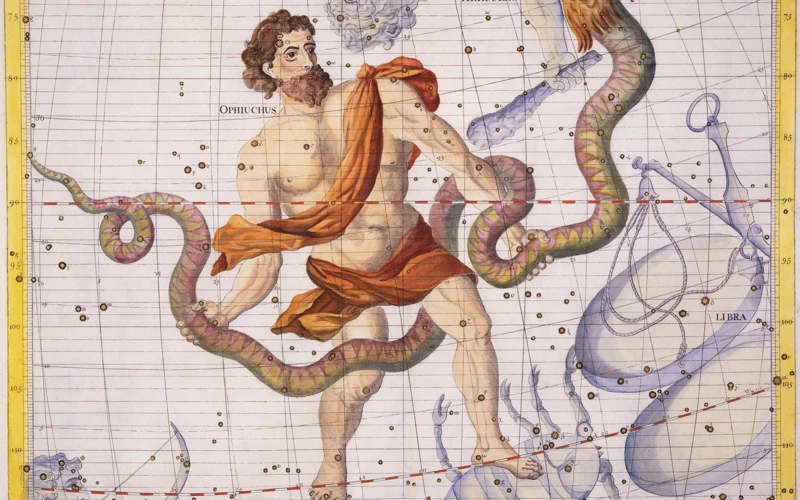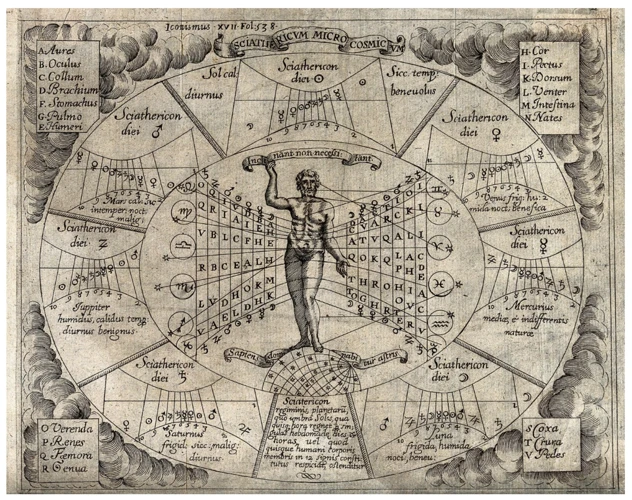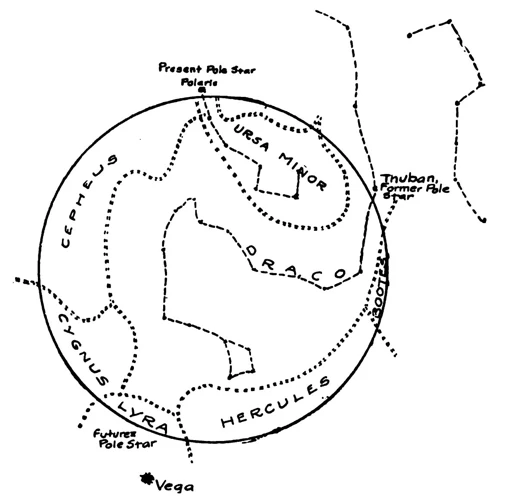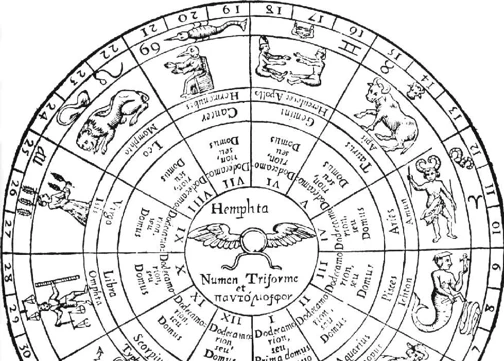The history of astrology is a fascinating journey that spans thousands of years and countless civilizations. From its roots in ancient Babylonian and Egyptian cultures to its evolution during the medieval and Renaissance periods, astrology has continuously adapted to the beliefs and practices of different societies. The Scientific Revolution ushered in a period of skepticism towards astrology, but also paved the way for its resurgence in the modern era. Today, astrology has found a new home in the digital age, with astrology apps, websites, and social media astrologers gaining popularity. In this article, we will explore the origins and evolution of astrology, taking a closer look at the different cultural influences, historical developments, and the role astrology plays in our lives today.
Ancient Astrology

Ancient astrology holds a rich tapestry of cultural and historical significance, dating back to civilizations such as Babylon, Egypt, and Greece. In Babylonian astrology, celestial observations were used to predict events and understand the will of the gods. The Babylonians developed an intricate system of divination that involved interpreting the movements of celestial bodies and their alignment with earthly events. In Egyptian astrology, the stars were believed to be connected to the gods and played a vital role in the afterlife. Egyptians used astrology to make decisions regarding their daily lives and even their pharaoh’s rule. Greek astrology, influenced by Babylonian and Egyptian practices, emphasized the relationship between celestial events and human affairs. It was during this time that the twelve zodiac signs were established, each associated with specific qualities and characteristics. Explore more about astrology in ancient Egypt and its secrets here. The contributions of ancient astrologers have paved the way for the development of astrology as we know it today.
1.1 Babylonian Astrology
Babylonian astrology, originating in ancient Mesopotamia, was a complex and influential system of divination. The Babylonians believed that celestial events and the positions of stars and planets held great significance in understanding the will of the gods and predicting events on Earth. They meticulously observed the movements of celestial bodies and recorded their findings on clay tablets. These observations formed the foundation of their astrological practices. One of the key contributions of Babylonian astrology was the development of the zodiac, which divided the sky into twelve equal parts, each representing a specific constellation. Each zodiac sign was associated with particular traits and qualities attributed to individuals born under them. Babylonian astrology heavily influenced subsequent civilizations, including the Greeks and Egyptians. The practices and knowledge passed down from ancient Babylonian astrologers laid the groundwork for the evolution of astrology through the ages. To learn more about the famous astrologers in history and their contributions, please click here.
1.2 Egyptian Astrology
In Egyptian astrology, the stars and celestial events held deep significance and were intricately tied to the religious and spiritual beliefs of ancient Egyptians. The Egyptians believed that the gods communicated through the movements of the celestial bodies, and they observed the sky to gain insights into the divine will. One of the most notable contributions of Egyptian astrology is the development of the decanic system, which divided each of the twelve zodiac signs into three smaller divisions called decans. Each decan was associated with a specific deity and had its own unique characteristics and meanings. For example, the decan of Aries was associated with the god Amun-Ra, symbolizing creativity and leadership, while the decan of Leo was associated with Sekhmet, representing strength and courage. Egyptian astrologers also paid close attention to the heliacal rising of certain stars, particularly Sirius, which marked the beginning of the Nile flood and was linked to the prosperity and abundance of the land. The practice of Egyptian astrology had a profound influence on the development of astrology in later civilizations, such as the impact it had on the Indian Vedic tradition.
1.3 Greek Astrology
Greek astrology, influenced by Babylonian and Egyptian practices, flourished during the Hellenistic period. It was during this time that Greek astrologers made significant contributions to the field, solidifying astrology’s importance in society. Greek astrologers believed that the movements of celestial bodies and their alignment with earthly events could reveal insights into a person’s character, future, and even the course of world events. One of the most prominent figures in Greek astrology was Claudius Ptolemy, who wrote the influential work “Tetrabiblos”. Ptolemy’s work laid the foundation for Western astrology by outlining the principles and techniques of astrological interpretation. Greek astrologers also developed the concept of the twelve zodiac signs, each associated with specific qualities and characteristics. These signs, such as Aries, Taurus, and Gemini, provide a framework for interpreting an individual’s birth chart and understanding their personality traits and life path. Additionally, Greek astrology introduced the division of the zodiac into twelve equal parts known as the houses. Each house represents a different area of life, such as relationships, career, and spirituality, offering further guidance for astrological interpretation. Greek astrology laid the groundwork for future astrological developments and continues to be a significant influence in astrology today.
Medieval and Renaissance Astrology

During the medieval and Renaissance periods, astrology experienced a blend of influences from different cultures and religious beliefs. In Arabian astrology, Islamic scholars played a pivotal role in translating and preserving ancient astrological texts, while also incorporating their own interpretations and calculations. Astrology was widely embraced in the Islamic world, and astrologers like Al-Kindi and Abu Ma’shar made significant contributions to the field. However, the rise of Christianity brought about a shift in attitudes towards astrology. The Church condemned astrology as a form of divination and considered it incompatible with Christian beliefs. Despite this, astrology continued to flourish in Medieval Europe, with scholars like Roger Bacon and Johannes Kepler studying the movements of the stars and planets. It was during the Renaissance that astrology experienced a revival as thinkers sought to reconcile it with the natural world. As the study of astrology spread, numerous famous astrologers emerged, such as Nostradamus and Tycho Brahe, who made impactful contributions to its development. Learn more about the impact of astrology in the Indian Vedic tradition here.
2.1 Arabian Astrology
Arabian astrology, also known as Arabic astrology or Persian astrology, flourished during the Islamic Golden Age and made significant contributions to the field. It drew inspiration from the earlier Babylonian and Greek astrological traditions but also incorporated elements of Persian and Indian astrology. One of the key figures in Arabian astrology was the Persian astrologer Abu Ma’shar, who focused on creating predictive horoscopes. Abu Ma’shar believed that the movements of celestial bodies influenced human destinies and emphasized the importance of astrological calculations. Another influential figure was Albumasar, whose work encompassed a wide range of topics, including mundane astrology, electional astrology, and predictive techniques. Arabian astrology also introduced the concept of essential dignities, which assigned certain planets to rulership, exaltation, or detriment in different signs. This system provided astrologers with a framework for understanding the strength and weakness of planets in a birth chart. The Arabian astrologers expanded on the existing astrological knowledge, refining techniques such as the calculation of planetary positions, lunar mansions, and the use of lots or arabic parts. These advancements in Arabian astrology led to the development of more sophisticated and nuanced astrological practices.
2.2 Influence of Christianity
The influence of Christianity on astrology during the medieval and Renaissance periods cannot be understated. As the Christian church gained power and prominence, it began to view astrology with suspicion and regarded it as a form of divination, which was viewed as sinful and contradictory to Christian beliefs. This led to a suppression of astrological practices and the labeling of astrology as heretical. However, despite the church’s disapproval, astrology continued to thrive in secrecy and underground circles. Many prominent figures in the Christian world, including bishops and monks, secretly practiced and studied astrology. They believed that understanding the celestial movements and their impact on human lives could provide valuable insights into God’s plan and the destiny of humankind. The influence of Christianity on astrology can be seen in various ways. Astrologers often incorporated Christian symbolism and imagery into their astrological texts, making them more acceptable to the church. Additionally, astrology began to be seen more as a tool for spiritual growth and self-reflection rather than fortune-telling. This shift allowed some practitioners to reconcile their astrological beliefs with their Christian faith. Despite the church’s efforts to suppress astrology, its influence on medieval and Renaissance culture remained profound. Astrological principles still found their way into Christian art, literature, and even the design of cathedrals. The complex relationship between astrology and Christianity during this period highlights the tension between faith and the pursuit of knowledge, and the enduring impact of astrology on both religious and secular societies.
2.3 Astrology in the Renaissance
During the Renaissance, astrology experienced a resurgence in popularity and underwent significant transformations. This period marked a shift towards a more humanistic approach to astrology, as scholars began to incorporate human psychology and individualism into their interpretations. Astrologers sought to understand the complexities of human nature, exploring the connection between celestial movements and personal characteristics. One prominent figure during this time was Italian astrologer and philosopher Marsilio Ficino. Ficino believed in the interplay between the macrocosm (the universe) and the microcosm (the individual), emphasizing the idea that the alignment of the planets at the time of a person’s birth could influence their personality and destiny. The Renaissance also witnessed the publication of influential astrological texts, such as Pico della Mirandola’s “Disputationes Adversus Astrologiam Divinatricem” which challenged the deterministic nature of astrology. Despite some skepticism, astrology remained an integral part of the Renaissance intellectual landscape. It was during this time that astrologers began to consult individual birth charts, providing personalized insights into a person’s life. The practice of astrology in the Renaissance era played a crucial role in shaping the foundations of modern astrology and its continued popularity.
The Scientific Revolution and Modern Astrology

During the Scientific Revolution, astrology faced a wave of skepticism and criticism as the focus shifted towards empirical evidence and rationality. The works of influential figures like Copernicus, Galileo, and Kepler challenged the traditional notions of astrology, questioning its validity and scientific basis. This critical perspective led to a decline in astrology’s popularity and its relegation to the realm of pseudoscience. However, the Scientific Revolution also paved the way for the birth of modern astrology. As science and spirituality began to find common ground, a new form of astrology emerged. This modern astrology focused more on psychological aspects, emphasizing personal growth, self-awareness, and introspection. Psychological astrology explores the connection between celestial patterns and the human psyche, acknowledging that astrology can provide insights and guidance on an individual’s personality and life path. Today, modern astrology continues to gain traction, bridging the gap between ancient practices and contemporary perspectives on personal transformation.
3.1 The Skeptical Movement
The skeptical movement, particularly during the 17th and 18th centuries, played a significant role in challenging the credibility and reliability of astrology. Prominent philosophers and scientists of the time, like René Descartes and Isaac Newton, sought to apply rational and empirical methods to understand the natural world. They questioned the validity of astrology, which relied heavily on celestial interpretations and symbolic associations. Descartes, known for his philosophy of Cartesian skepticism, doubted the legitimacy of astrology as a science due to its lack of empirical evidence. Newton, a renowned physicist, rejected astrology as he believed it lacked a solid foundation in mathematical principles. Both thinkers emphasized the importance of empirical observation and measurable data to explain phenomena, a stark contrast to the more occult and interpretive nature of astrology. This movement of skepticism laid the groundwork for a more scientific approach to understanding celestial phenomena, leading to new advancements in astronomy and the eventual separation of astrology from the realm of science.
3.2 The Birth of Modern Astrology
During the Age of Enlightenment, a shift towards rationality and the scientific method led to a decline in the popularity of astrology. However, in the late 19th century, there was a resurgence of interest in astrology with the birth of modern astrology. This revival can be attributed to the efforts of influential figures such as Alan Leo, Evangeline Adams, and Sepharial. Alan Leo played a pivotal role in popularizing astrology by publishing books and establishing astrology organizations. He focused on incorporating psychological and spiritual elements into astrology, moving away from traditional fatalistic interpretations. Evangeline Adams was a prominent American astrologer who gained recognition and popularity through her accurate predictions and consultation services. She even provided astrological guidance to well-known figures such as President Theodore Roosevelt and J.P. Morgan. Sepharial, a British astrologer, introduced innovative techniques such as the concept of planetary hours and the use of progressions in astrology. Together, these pioneers laid the foundation for modern astrology by introducing new perspectives, techniques, and methods that appealed to a wider audience. Their contributions marked a significant shift in astrology’s approach, moving it towards a more individualistic and psychological framework.
3.3 Psychological Astrology
Psychological astrology is a branch of astrology that focuses on the inner workings of the individual’s psyche and how it influences their behavior, motivations, and personality. This form of astrology delves into the depths of the human mind, exploring concepts such as the unconscious, archetypes, and the influence of childhood experiences. It draws inspiration from the ideas of renowned psychologists such as Carl Jung, who believed that the symbols and myths associated with astrology can provide insights into the human psyche. In psychological astrology, the birth chart is seen as a reflection of an individual’s psychological makeup, revealing their strengths, weaknesses, and potential areas of growth. It seeks to uncover the underlying patterns, themes, and conflicts that shape an individual’s personality and life experiences. By examining the placements of planets, aspects, and houses within the birth chart, a psychological astrologer can provide valuable insights and guidance for self-discovery, personal growth, and understanding. Psychological astrology goes beyond predicting future events and places emphasis on self-reflection, healing, and the integration of the conscious and unconscious aspects of the self. It offers a unique perspective on astrology, bridging the gap between psychology and spirituality.
Astrology in the Digital Age
Astrology has experienced a significant transformation in the digital age, with the advent of astrology apps and websites, as well as the rise of social media astrologers. Astrology apps and websites provide accessible platforms for people to explore their horoscopes, birth charts, and receive personalized astrological readings. These digital tools offer convenience and allow individuals to access astrological information anytime, anywhere. Additionally, social media has become a hub for astrological discussions and engagement. Many astrologers have gained a substantial following on platforms like Instagram and YouTube, where they share daily horoscopes, astrological insights, and engage with their audience. This emergence of social media astrologers has made astrology more mainstream and accessible to a wider audience. Within the digital age, astrology has also intertwined with discussions around personal growth and self-awareness. People are increasingly turning to astrology as a tool for self-reflection, understanding relationships, and navigating life’s challenges. Astrology in the digital age has provided a new avenue for individuals to engage with this ancient practice and find personal meaning in the cosmos.
4.1 Astrology Apps and Websites
Astrology in the digital age has witnessed a significant transformation with the advent of astrology apps and websites. These technological advancements have made astrology more accessible than ever before. Astrology apps offer personalized horoscopes, compatibility readings, and even daily astrological guidance. These apps allow users to input their birth details and receive accurate and tailored astrological insights. With a wide range of features, astrology apps cater to different interests, from general astrology enthusiasts to those seeking specific guidance in love, career, or personal growth. Astrology websites also play a crucial role in disseminating astrological knowledge. They provide comprehensive information about zodiac signs, planetary influences, and astrological techniques. Some websites offer interactive tools and calculators, allowing users to generate birth charts and explore astrological aspects with ease. Additionally, astrology enthusiasts can find articles, blogs, and forums on these websites, fostering a sense of community and enabling discussions among like-minded individuals. As astrology continues to evolve, astrology apps and websites remain at the forefront, empowering individuals to explore and understand the role of astrology in their lives.
4.2 The Rise of Social Media Astrologers
With the advent of social media platforms, the world of astrology has experienced a significant transformation. The rise of social media astrologers has allowed astrology to reach a broader audience and gain popularity among individuals who may not have previously been exposed to it. Social media platforms such as Instagram, Twitter, and YouTube have become fertile grounds for astrologers to share their insights, predictions, and personalized horoscopes with the world. These astrologers use their social media platforms to engage with their followers, offering guidance, answering questions, and providing daily, weekly, or monthly astrological forecasts. This interactive nature of social media allows for a more accessible and immediate connection between astrologers and their audience. Social media astrologers often have a unique approach to astrology, combining traditional astrological knowledge with modern interpretations and personal experiences. They provide bite-sized astrology content that is easily consumed and shared, making astrology more relatable and enticing to a wider audience. This rise in popularity has also led to the monetization of astrology, with social media astrologers offering paid services such as personalized birth charts, readings, and workshops. However, it is important for individuals to exercise discernment and critical thinking when engaging with social media astrologers, as not all practitioners may have the necessary credentials or depth of knowledge. Despite the criticisms and controversy surrounding the rise of social media astrologers, there is no denying the impact they have had on increasing the accessibility and visibility of astrology in the digital age.
4.3 Astrology and Personal Growth
Astrology has taken on a new dimension in the digital age, offering individuals the opportunity for personal growth and self-discovery. In the realm of astrology and personal growth, many people turn to their birth charts for insight into their strengths, weaknesses, and potential growth areas. The birth chart, a map of the positions of the planets at the time of a person’s birth, is used to provide a deeper understanding of one’s personality traits, motivations, and life path. By studying the placement of planets and their aspects within the birth chart, individuals can gain valuable insights into their skills, challenges, and opportunities. This self-awareness allows individuals to harness their strengths, address their weaknesses, and embark on a journey of personal development. Astrology offers guidance in navigating life’s challenges and making important decisions. By understanding the cosmic energies at play, individuals can make informed choices that align with their true selves and personal growth objectives. Astrology can also provide comfort and support during periods of upheaval or uncertainty, offering solace and reassurance that there is meaning and purpose in their experiences. With the help of astrology, individuals can embark on a transformative journey of self-discovery, leading to personal growth, resilience, and a deeper understanding of themselves and the world around them.
Conclusion
In conclusion, the origins and evolution of astrology have shaped its long and diverse history. From the ancient civilizations of Babylon, Egypt, and Greece to the medieval and Renaissance periods, astrology has continuously adapted to the beliefs and practices of different societies. It has witnessed both skepticism and resurgence, especially during the Scientific Revolution and modern era. With the advent of the digital age, astrology has found a new platform through astrology apps, websites, and social media astrologers. Astrology continues to play a significant role in many people’s lives, offering insights, guidance, and a sense of connection to the cosmos. Whether it is used for personal growth, self-reflection, or simply entertainment, astrology remains a source of intrigue and fascination. As we journey through the vast universe of astrology, we are reminded of the ancient wisdom and enduring relevance that astrology holds.
Frequently Asked Questions
1. What is astrology?
Astrology is a belief system and a method of divination that suggests a connection between celestial phenomena and human affairs. It involves studying the positions and movements of celestial bodies, such as the sun, moon, planets, and stars, to interpret their influence on individuals and events.
2. How old is astrology?
Astrology has ancient origins and can be traced back thousands of years. The earliest recorded astrological practices date back to the Babylonian civilization around the 2nd millennium BCE.
3. Is astrology considered a science?
No, astrology is not considered a science in the modern sense. It does not follow the rigorous methodologies and empirical testing that scientific disciplines adhere to. However, astrology continues to be a subject of fascination and interest for many individuals.
4. What are the zodiac signs?
The zodiac signs are a division of the ecliptic into twelve equal parts, each corresponding to approximately 30 degrees. The signs, starting from Aries and ending with Pisces, are believed to symbolize different personality traits and characteristics.
5. Can astrology predict the future?
Astrology is often used for forecasting and examining potential outcomes, but it is not considered a definitive method for predicting the future. Astrological readings provide insights and possibilities rather than certainty.
6. Are horoscopes and astrology the same thing?
Horoscopes are a popular application of astrology. They provide generalized interpretations and predictions based on an individual’s zodiac sign. Astrology, on the other hand, encompasses a broader range of techniques and beliefs beyond daily horoscopes.
7. How does astrology impact personal relationships?
Astrology can be used to gain insights into personal relationships by examining the compatibility of individuals’ zodiac signs. It is believed that certain zodiac pairings may have more harmonious or challenging dynamics based on their astrological attributes.
8. Are there different types of astrology?
Yes, there are various types of astrology practiced worldwide. Some examples include Western astrology, Vedic astrology, Chinese astrology, and Mayan astrology. Each system has its own unique methods, traditions, and cultural influences.
9. Can astrology be used for self-reflection and personal growth?
Astrology can be a tool for self-reflection and personal growth. By understanding their zodiac sign, birth chart, and astrological aspects, individuals may gain insights into their strengths, weaknesses, and areas for personal development.
10. How has astrology evolved over time?
Astrology has evolved significantly over the centuries, adapting to different cultural and historical influences. From its early roots in divination, astrology has gone through periods of skepticism, religious integration, and even experienced a modern resurgence with the rise of digital platforms and social media.








